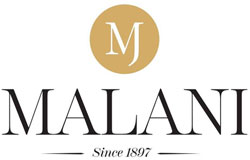
Malani, Inc
Malani Jewelers is an international luxury jewelry enterprise and specialty retailer headquartered in Atlanta, Georgia. [1] It sells traditional Indian and contemporary jewelry in 18K & 22K Gold, diamonds, sterling silver and gemstones. [2] Malani is widely known for its variety of high-quality and often rare pieces. From 22K Gold bridal sets, handcrafted diamond jewelry (including engagement rings) to more modern Indo-Western designs, Malani has quickly become one of the largest online jewelry retailers in North America [3] These goods can also be purchased in-store at their many retail locations.
Before being a pioneer of retail and e-commerce in their industry, the Malani corporation initially operated various businesses. It was founded in 1897 by Jinnah Hasham Malani and owned and operated by the family directly for over five generations [4]. During the late 20th century, it became internationally recognized as a luxury jeweler under the business direction of Malani’s great-grandson, Iqbal Malani, who currently serves as CEO[5]
Since its opening over 100 years ago, Malani has been operating businesses globally and has manufacturers in countries such as Canada, Belgium, Germany, Italy, Malaysia, Singapore, Singapore, Hong Kong, Dubai, Pakistan, India, the United States, Africa [5]
Content
-
1 History
- 1.1 Establishment
- 1.2 Calcutta Riots
- 1.3 Partition
- 1.4 Shift to Luxury Goods
- 1.5 The Digital Age
- 1.6 BLM Protests
- 1.7 Malani Today
-
- 2.1 Temple Jewelry
- 2.2 Kundan or Jaipuri Jewelry
- 2.3 Meenakari Jewelry
- 2.4 Polki Jewelry
- 2.5 Jadau Technique
-
3 Products
- 3.1 22K Gold
- 3.2 Diamonds and Gemstones
-
4 History
Malani Jewelers, Inc

|
|
| Business Name | Malani Jewelers, Inc. |
| Type | Corporation |
| Industry | Retail |
| Founded | 1897 (123 years ago) |
| Headquarters | 739 Dekalb Industrial Way Ste 2100 Decatur, GA 30033 |
| Key people |
Iqbal Malani
(CEO)
Shermyn Malani (CFO) |
| Slogan | “Where Service and Trust is a Tradition.” |
| Website | MalaniJewelers.com |
History
Establishment
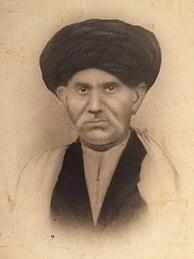
While under British rule, Malani was established in Kathiawar, Gujarat in 1897 by Jinnah Hasham Malani [4]. However, years later, Malani along with his wife and ten children, relocated to Calcutta (Kolkata), India. There, the family expanded business operations throughout India and various parts of Africa [5] .
Calcutta Riots
On 16 August 1946, violence erupted across the Indian Subcontinent, as numerous Muslims protested the British''''s conditions to initiate the transfer of power from Colonial rule back to the Indian people [6]. There was concern that this proposal would purposefully destabilize the nation and create discord among religious groups. These protests would also be known as Direct Action Day and the Calcutta Killings due to catastrophic events.
The ensuing violence further deteriorated Hindu-Muslim relations , which were already at a historical low at the time. During the protests, businesses, homes, and public buildings crumbled- vandalized and reduced to rubble [7] . Ultimately, the Malani storefronts burned down and the rest of the carnage. Consequently, the family relocated again to Hyderabad, India , in 1942 to escape with their lives [8].
While challenging, fortunately, the family business thrived in Hyderabad under Nizam Rule . During this time, the family established more secure roots before being devastatingly uprooted again by Partition. This pattern of political strife, the family''''s displacement, loss, and ultimate survival would repeat itself numerous times in the future.


Partition
During the Partition of the Indian Sub Continent in 1947, the land separated into two new distinct dominions, Pakistan and India, with the former being a majority Muslim country and the latter, majority Hindu [9] . Fifteen million religious minorities in both nations were encouraged to migrate to join the country of their majority religion, resulting in the largest mass migration in history, as well as the bloodiest [10] .
Ten to Twenty million people crossed the newly formed borders. However, an estimated 2 million people died from violence and the harsh conditions of traveling primarily on foot. According to historians, only a tiny fraction of travelers ever made it safely across to their new designated country[10].
Despite the mass exodus of Muslims leaving India, the family remained in their homeland, determined to survive once again. Despite setbacks, the family again diversified their business. At this time, the business focused on textiles and crockery until the late 1960s [11] .
Shift to Luxury Goods
In 1967 the family moved their business to Karachi, Pakistan . While successful in crockery and textiles, the business ultimately specialized in luxury goods due to their popularity [11] .
In 1983, the Malani Gift Shop in the Ramada Renaissance Hotel in Karachi, Pakistan, was opened. Avari Hotels acquired this hotel, a Pakistani international luxury hospitality management company that currently operates five hotel properties in Pakistan, two in Dubai and one in Toronto , since 1944 [12].
In 1985, the then CEO, Iqbal Malani, great-grandson of the founder, began traveling across the globe to source, curate, and purchase rare jewelry that would eventually sell in his store. These unique pieces associated the Malani name with high luxury; the business named their main store the Malani Luxury Gift Boutique to secure its growing reputation as a global luxury brand.
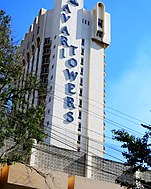

By 1995, Iqbal Malani and his wife, Shermyn (the current CFO), moved to Toronto, Canada, where they continued to grow their business while raising three sons, Aliammar, Uzair, and Zanir. During this time, Malani opened a similar luxury gift boutique in Toronto, Canada, at the Downtown Sheraton Hotel.
In 1996, Malani and his family moved to Atlanta, GA, to further expand on Malani’s luxury goods business, refining their acquisition of rare, handmade jewelry.
It was there that the family opened an exclusive, in-line jewelry store at the Town Center Mall. Soon after, Iqbal & Shermyn Malani started what is known today as Malani Jewelers, Inc., Headquartered in Decatur, GA.
The Digital Age
In 1998, beginning with only a 1,000 sq/ft showroom, the business rapidly grew into over 15,000 sq/ft of showroom and office spaces. Additional locations in Tampa, Florida, opened on March 30th, 2006, while the Dallas, Texas showroom opened on October 2nd, 2013. Malani Jewelers currently holds the most prominent 22K Gold & 18K Diamond E-Commerce platform in North America on MalaniJewelers.com.
BLM Protests
The Black Lives Matter (BLM) movement began in July 2013, with the hashtag #BlackLivesMatter on social media after the acquittal of George Zimmerman in the shooting death of African-American teen Trayvon Martin 17 months earlier in February 2012. The movement became nationally recognized for street demonstrations following the 2014 deaths of two African Americans, of Michael Brown —resulting in protests and unrest in Ferguson, Missouri a city near St. Louis —and Eric Garner in New York City. Since the Ferguson protests , participants in the movement have demonstrated against the deaths of numerous other African Americans by police actions or while in police custody. In the summer of 2015, Black Lives Matter activists became involved in the 2016 United States presidential election .. The originators of the hashtag and call to action, Alicia Garza , Patrisse Cullors , and Opal Tometi , expanded their project into a national network of over 30 local chapters between 2014 and 2016.

The movement returned to national headlines and gained further international attention during the global George Floyd protests in 2020 following his murder by Minneapolis police officer Derek Chauvin .
An estimated 15 million to 26 million people participated in the 2020 Black Lives Matter protests in the United States, making it one of the most significant movements in the country''''s history. The movement comprises many views and a broad array of demands, but they center on criminal justice reform .
Craftsmanship
Temple Jewelry
Originating in the 9th century, Temple Jewelry remains a valuable part of South India’s cultural heritage. It was initially worn for religious ceremonies but adopted for other heightened social occasions. Often intricate and made with the finest materials, Temple Jewelry is regarded as an expensive, nearly exclusive status symbol. Typically, it is worn both by wealthy women and classical dancers to add divinity and uniqueness to their look.
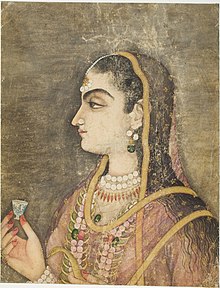
Kundan or Jaipuri Jewelry
Kundan, also known as Jaipuri since Jaipur, Rajasthan, is the traditional center for Kundan in India.[17] It is a distinguished form of Indian gemstone jewelry involving a gem set with a gold foil between the stones and its mount, usually for elaborate necklaces. This method is believed to have originated in the royal courts of Rajasthan and Gujarat. The word Kundan means highly refined gold, and a pure form of molten gold.[18] Kundan jewelry remains an integral part of the traditional bridal wedding trousseau.
Origins of Kundan jewelry in India date back to at least the 3rd century BCE. Kundan started in the Rajasthan Royal court and then flourished under royal patronage during the Mughal era.[19] Over the years, the Kundan jewelry of the courts was successfully copied in silver in Rajasthan, Bihar, and Punjab and became popular with the common man.
Most recently, in the 2008 historical epic film Jodhaa Akbar, Princess Jodhaa Bai, portrayed by Aishwarya Rai, was extensively shown wearing Kundan and Meenakari jewelry, highlighting its influence among Rajasthani royalty.[21]
Meenakari Jewelry
Meenakari refers to a specific enamel technique used in various types of jewelry from Western and South Asia. The beauty of Meenakari lies in its vivid bright colors and smooth polished appearance. While richly paired with pearls, diamonds, and a variety of gemstones, its intricate enamel work elevates this jewelry-making technique.[22] Meenakari regained popularity as a fashionable and modern look due to its presence in many historical dramas.[23]
Polki Jewelry
Polki jewelry is one of the most notable types of South Asian jewelry. Polki features rough, uncut diamonds paired with gold and other gemstones, with the diamonds being purposefully unpolished. This raw look gives Polki jewelry its distinction as a timeless heirloom often passed down from generation to generation.[24]
Jadau Technique
Characterized by exquisite metalwork, Jadau or Jali jewelry features metal mesh and filigree. The word "Jali" refers to the type of stone carvings found in Indian architecture, which feature elaborate and detailed stone filigree and bead-like designs.[26] Jadau is synonymous with royalty and remains a favorite for those looking to infuse traditional beauty into their jewelry collections.[27]
Products
22K Gold
Malani Jewelers is known for its luxury goods and carries the widest variety of 22K Gold, Diamond, Antique, and Gemstone Jewelry in Northern America. The 22K Gold collection features intricately designed pieces that showcase both traditional and contemporary styles. These pieces are highly valued for their purity and craftsmanship, making them a popular choice for weddings and other special occasions.[28]
Malani Inc. is committed to sourcing gold that complies with international environmental and social standards. They ensure that all gold suppliers adhere to guidelines such as the Dodd-Frank Act and Signet SRSP, promoting responsible gold sourcing and ethical practices.[29]
Diamonds and Gemstones
Unlike other similar diamond retailers, such as Tiffany & Co., Malani does not have a strict policy against repurchasing diamonds sold from its stores. It offers a 15-day money-back guarantee on all diamond jewelry purchased online, placing client satisfaction as its primary business priority. All Malani diamonds are certified by GIA, IGI, GAL, or EGL and come with a Malani Certificate of Authenticity.[30]
Malani Jewelers also offers a vast selection of genuine birthstones, carefully hand-picked by their highly experienced purchasing & design team. These gemstones are natural and have never been treated, irradiated, or color-enhanced to maintain their astrological properties and natural beauty.[31]
Awards and Recognition
Malani Jewelers, Inc. has over 12,000 5-star Google verified reviews and was nominated as the best in Georgia 2021 by the Georgia Business Journal.[32]
Philanthropy and Corporate Sponsored Events
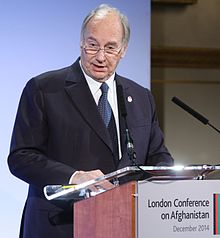
Since the company''''s birth, philanthropy and the spirit of giving have remained a core value at Malani Jewelers. The Malani Family believes in leveraging the glamor and allure of high-end jewelry to reach a broader audience for charitable causes.
Aga Khan Foundation
This passion for serving and providing opportunities for those in need has led them to work with the Aga Khan Foundation (AKF) and the Aga Khan Development Network (AKDN).[29] The AKF seeks to provide long-term solutions to poverty, hunger, illiteracy, and ill health in the poorest parts of South and Central Asia, Eastern and Western Africa, and the Middle East. In these regions, the needs of rural communities in mountainous, coastal, and resource-poor areas receive particular attention.[30]
The Foundation''''s activities often reinforce the work of other sister agencies within the Aga Khan Development Network (AKDN). While these agencies follow different mandates about their respective fields of expertise (the environment, culture, micro-finance, health, education, architecture, rural development), their activities often coordinate with one another to "multiply" the overall effect that the Network has in any given place or community.[31] AKF also collaborates with local, national, and international partners to bring about sustainable improvements in life in the 19 countries in which it works. The Foundation''''s head office is located in Geneva, Switzerland.[32]
In Popular Culture and Celebrity Endorsements
Malani Jewelers has been featured in major magazines and is associated with top Bollywood and Hollywood celebrities. Notable figures include Deepika Padukone, Priyanka Chopra, Katrina Kaif, Alia Bhatt, Sara Ali Khan, Saumya Tandon, Esha Deol, Mona Singh, and Karishma Sharma. These endorsements highlight the brand''''s appeal and presence in both the Bollywood and Hollywood industries.
Malani has also sponsored several significant Bollywood-based events, including the 2014 IIFA Awards Expo, the 2019 Arijit Singh concert, and Saif Ali Khan''''s 2019 international hit "The Nawab Story". These partnerships underscore Malani''''s commitment to connecting with a wide audience through cultural and entertainment platforms.[33]
Environmental Sustainability Efforts
Environmentally Sustainable Gold/Diamonds
Malani Jewelers, Inc. is committed to effective environmental management and compliance with all applicable environmental laws and regulations. The company consistently trains and audits its employees to maintain long-held compliance with these standards. Malani is dedicated to fighting against undisclosed synthetic diamonds and only buys from trusted suppliers who adhere to stringent ethical guidelines.[34]
The company ensures that all of its gold suppliers comply with internationally recognized gold sourcing guidelines, such as the Dodd-Frank Act and the Signet Responsible Sourcing Protocol (SRSP). Malani''''s sourcing of gold, precious metals, and related products adheres to the highest social, human rights, and environmental standards.[35]
Gold Sourcing Policy
Malani Jewelers is vigilant about the environmental and social impacts of gold sourcing. The company works closely with suppliers who are committed to ethical sourcing practices. Malani''''s gold sourcing policy is designed to ensure transparency, traceability, and accountability throughout the supply chain.[36]
Fight Against the Blood Diamond Industry
Malani Jewelers is fully committed to complying with all the requirements specified in the Kimberley Process Certification Scheme and the World Diamond Council’s (WDC) System of Warranties Declaration. All Malani-associated manufacturing sites and suppliers recognize and strictly adhere to the definition of ‘Conflict Gem Stone Diamonds’ as outlined by the Kimberley Process.[37]
Citations
- "Malani Jewelers | Better Business Bureau® Profile". www.bbb.org. Archived from the original on 24 February 2022. Retrieved 24 February 2022.
- "Malani Jewelers in Decatur, GA". YP.com. Retrieved 24 February 2022.
- Jacob, Ann (April 2017). "A study on Jewelry and gem industry in India". International Journal in Management and Science. 5: 127–134 – via Academia.edu.
- Bhattacharya, Sabyasachi (2018). Archiving the British Raj: History of the Archival Policy of the Government of India, with Selected Documents, 1858-1947. India: Oxford Scholarship Online: February 2019. pp. 115–117. ISBN 9780199489923.
- "GI-Certified Products Pushing Indian Exports | IBEF". www.ibef.org. Archived from the original on 24 February 2022. Retrieved 24 February 2022.
- "The National Archives - Homepage". The National Archives. Archived from the original on 24 February 2022. Retrieved 24 February 2022.
- NARIAKI, NAKAZATO (2004). Muslim Societies: historical and comparative aspects. London: Routledge Curzon. p. 28. ISBN 9780203401088.
- Sen, Prithviraj (2019). 1946 Great Calcutta killings (in Bengali). India: Tuhina Prakashani. pp. 106–108. ISBN 9108529487847.
- White-Spunner, Barney (2017). Partition: The Story of Indian Independence and the Creation of Pakistan in 1947. London: Simon & Schuster UK. pp. 235–257. ISBN 9781471148002.
- Nisid, Hajari (2015). Midnight''''s Furies: The Deadly Legacy of India''''s Partition. Boston: Houghton Mifflin Harcourt. pp. 158–157. ISBN 978-0547669212.
- Machado, Pedro (2018). Textile Trades, Consumer Cultures, and the Material Worlds of the Indian Ocean: An Ocean of Cloth. Toronto: Palgrave Macmillan. pp. 427–429. ISBN 978-3319582641.
- Kumar, Ritesh (2018). "Wular Lake, Kashmir". The Wetland Book, Dordrecht: Springer Netherlands, pp. 1705–1710. Retrieved 24 February 2022.
- "Tampa Businesses Rebuild After Weekend Fires, Looting". www.baynews9.com. Archived from the original on 24 February 2022. Retrieved 24 February 2022.
- "Tampa mayor, police chief after protests: Stay home". Tampa Bay Times. Retrieved 24 February 2022.
- "Memorial service honors students killed in terrorist attack". news.emory.edu. 30 August 2016. Retrieved 6 April 2022.
- "Faraaz Hossain, A Bangladesh Muslim, Died Protecting His Friends In Dhaka Attack". HuffPost. 4 July 2016. Retrieved 6 April 2022.
- Untracht, Oppi (2008). Traditional jewelry of India. New York: Thames & Hudson. ISBN 978-0-500-28749-1. OCLC 213111047.
- Untracht, Oppi (2008). Traditional jewelry of India. New York: Thames & Hudson. ISBN 978-0-500-28749-1. OCLC 213111047.
- Treasures of the Mughals and the Maharajas: the Al-Thani collection. Amin Jaffer, Palazzo ducale. Milan, Italy. 2017. ISBN 978-88-572-3594-3. OCLC 1017847528.
- "Kundan jewellery: The history and intricate craft behind the bridal favourite". Vogue India. Condé Nast. 16 August 2019. Retrieved 7 April 2022.
- Keene, Manuel (2001). Treasury of the world: jeweled arts of India in the age of the Mughals. Salam Kaoukji. New York: Thames & Hudson. ISBN 0-500-97608-2. OCLC 48241010.
- Peterson, Samuel R. (1979). "A Survey of Persian Handicraft: A Pictorial Introduction to the Contemporary Folk Arts and Art Crafts of Modern Iran. Edited by Jay Gluck and Sumi Hiramoto Gluck; Teheran, New York, London, Ashiya (Japan); Survey of Persian Art; 1535/1977. 416 pp". Iranian Studies. 12 (3–4): 306–309. doi:10.1017/s0021086200004278. ISSN 0021-0862.
- Kaim, Barbara (2007-05-15). "Investiture. III. Sasanian period". in: E. Yarshater, ed., Encyclopaedia Iranica, vol. XIII, fasc. 2, 2005, pp. 184-188, 2 pl. Abstracta Iranica (Volume 28). doi:10.4000/abstractairanica.16902. ISSN 0240-8910.
- Hoey, William, "Z", A Monograph on Trade and Manufactures in Northern India, Cambridge: Cambridge University Press, pp. 195–200. Retrieved 7 April 2022.
- Shor, Russell (2014). "Rough Diamonds: Auctions Bring Sweeping Changes in Pricing, Distribution". The Global Diamond Industry. London: Palgrave Macmillan UK. pp. 137–160. ISBN 978-1-349-57562-6. Retrieved 7 April 2022.
- "Everything you need to know about jadau jewellery". Vogue India. Condé Nast. 12 December 2019. Retrieved 7 April 2022.
- "Terms and conditions for a direct billing agreement | Tiffany & Co". www.tiffany.com. Retrieved 7 April 2022.
- "Certificates of Authenticity". 6 April 2022.
- "BUILDING THE FUTURE: The Aga Khan Museum". Mirror, Fannie Sunshine | North York. Toronto. Retrieved 7 April 2022.
- "Kate reveals ahead of Pakistan tour she likes spicy food unlike ''''wary'''' William". Daily Echo. Retrieved 7 April 2022.
- "Fellowships for meritorious students". Service, Tribune News. Tribuneindia News Service. Retrieved 7 April 2022.
- Kassam, Zayn R. (2011). "The Gender Policies of Aga Khan III and Aga Khan IV". A Modern History of the Ismailis. I.B.Tauris. Retrieved 7 April 2022.
- "The luxurious life of the Nawab of Pataudi, Saif Ali Khan". GQ India. Condé Nast. 16 August 2021. Retrieved 7 April 2022.
- "Devdas: Raise your glass". The Times of India. 30 May 2002. Archived from the original on 24 April 2024. Retrieved 20 June 2011.
- "Aishwarya Rai Bachchan''''s father passes away; was suffering from cancer". Financial Express. 18 March 2017. Archived from the original on 20 March 2017. Retrieved 29 December 2023.
- "This Week in Entertainment". Rediff.com. 1 November 1973. Archived from the original on 22 November 2011. Retrieved 1 June 2011.
- Samant, Prajakta (15 January 2003). "She is a big star; I''''m just starting". Rediff.com. Archived from the original on 19 October 2011. Retrieved 1 June 2011.
- "Dili Ka Rishta is special for me: Aishwarya". Rediff.com. Archived from the original on 23 February 2016. Retrieved 20 January 2023.
- "Aishwarya Rai Bachchan | I Don''''t Want, Pyaar Impossible! To Be Remade In Hindi". Bollywood Hungama. 2010. Retrieved 2022-04-07.
